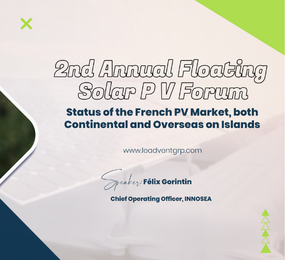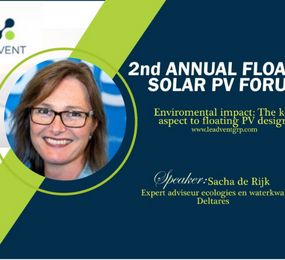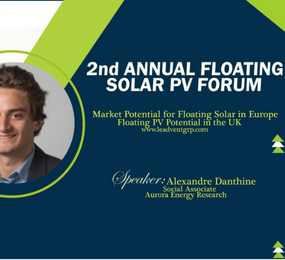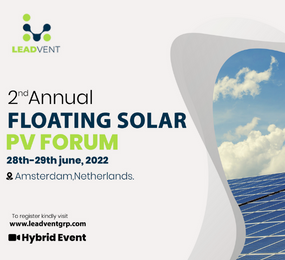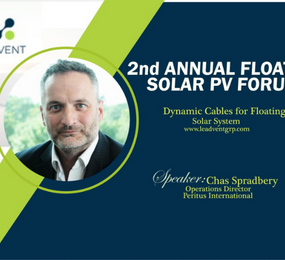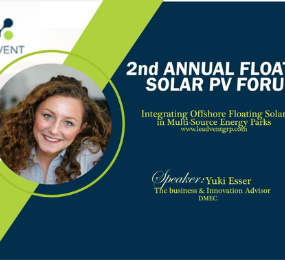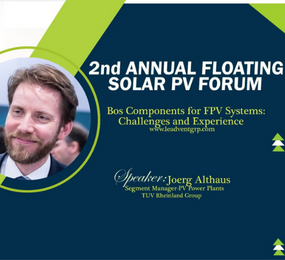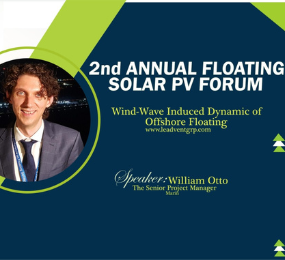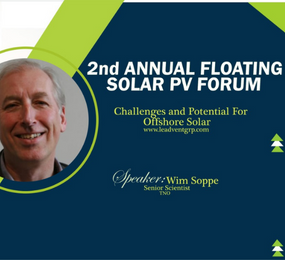Ever since technology's inception in 2008, floating photovoltaic (FPV) farms have grown in popularity. Do you know that Floating PV has been utilized in up to 27 countries and counting and that it is still in its emerging phase? Among its many possibilities, Floating PV has the capability to be integrated into existing hydropower reservoirs rather than requiring additional land for PV systems. This is especially essential in mountainous places, where usable land is already rare and flat spaces to install PV systems are often sparse. Furthermore, FPV may be used to cover reservoirs without producing shading problems, which is a major issue with terrestrial systems due to the sloppy environment.
For emerging markets in hilly areas of the world, floating PV-hydropower hybrid systems are becoming increasingly widespread. These FPV-hydropower hybrid systems are beneficial for a variety of reasons, the most important of which is that they provide a dual source of energy, needed for enhanced power output from hydropower reservoirs, and are a cost-effective alternative to ground-mounted PV systems. No wonder Chinese officials have been proposing to increase their country's usage of Floating PV in like manner.
Although this method has lots of possibilities, there are also challenges such as strong winds and shading effects caused by trees and buildings due to the sloppy environment which will adversely affect the productivity of the energy system as a whole. However, these factors can be reduced simply by applying the right design technology and installation of generators so as to generate a constant flow of power supply.
Challenges facing FPV-hydropower hybrid systems in mountainous areas include technical, economic, environmental, social, regulatory, and cultural problems.
Technical barriers.
Most technical issues surrounding floating PV-hydropower hybrid depend on the grid integration as floating PV needs anchor support and good development. Secondly, the system can also suffer dam failure and natural disasters such as strong wind and wave currents. These can be reduced by the design technology- producing wind and wave-resistant systems.
Regulatory Barriers
Many policies, regulations, and laws that are established pose a challenge in the Floating PV- hydropower hybrid system installation as they increase profusely the technical cost of establishing the system. They include Licensing and approvals, Interconnection and operational policies, Regulatory frameworks like grid code, Market and tariff design regulations, and risk evaluation methods.
Cultural barriers
Most FPV developments are perceived as being environmental -unfriendly. They are seen as being dangerous to the marine environment, as much as this belief is false (because FPV has no or very little effect on the marine environment- mostly during repair periods), It is not going to change anytime soon due to lack of understanding and awareness.
Environmental barriers.
This is one of the major barriers to floating PV development on hydropower reservoirs in mountainous areas in developing markets as the system depends on the water density, soil quality, wave interference, and many others to perform. Many environmental factors have to be properly assessed before the system is designed.
Economic barriers
When compared to on-land installations, the increased complexity caused by unexpected water conditions might raise O&M expenses. However, given the lack of case studies, it is unknown how much more expensive FPV would be as compared to on-land solar. Before establishing the project, endeavor to understand the technical challenges involved, location of the proposed project, incentives, drivers, and trade-offs.
Benefits with hybrid hydro-power and floating PV systems.
Amid every challenge, there are a lot of advantages to using hybrid hydropower + floating PV system when compared to the conventional hydropower plant such as
-
reduction in water evaporation as hybrid hydropower with floating PV system can save about 1sqm/KW of water when installed.
-
Decrease in water temperature due to the albedo effect hereby enhancing water conservation
-
Massive energy is being produced through this method, which is higher if compared to the traditional hydropower system.
-
Better energy access to remote areas as this system mechanism lessens energy transportation and other energy-related issues
Do you want to be more successful in the Floating Solar market and Learn how to bring in your A-game!
The 2nd Annual Floating Solar PV Forum is for you as it aims to bring together experts, practitioners, and key industry gurus to extensively explore the foreseen possibilities, innovations, challenges as well as best practices concerning the floating PV market community.
Meet Ernest Poku, Senior Vice President, Hydropower Project Development Africa, Scatec ASA who will be handling a case study on the topic "FPV Development on Hydropower Reservoirs in Mountainous Areas in Developing Markets" at the 2nd Annual Floating Solar PV Forum. Save the Date Now! 28th - 29th June 2022
Connect with us to gain experience in the ever-developing floating PV technology and also interconnect with other industry players from Europe and the rest of the world.
To request the agenda please send the request to Leadvent Group via email.
For more information and group participation, contact us: [email protected]
Follow us on social media with event hashtag #FPV2022
LinkedIn | Facebook | Twitter | Instagram


